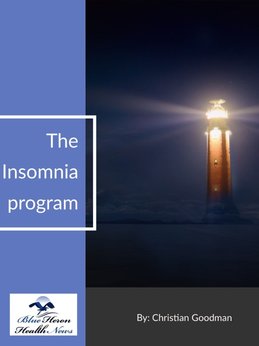
The Insomnia Program™ By Christian Goodman This program has been created by Christian Goodman, a natural health expert and sufferer of insomnia. He has used an audio program to let your fall sleep with the help of a bit of a hypnotic effect on your body.
What is the relationship between insomnia and cardiovascular health?
Insomnia has a significant relationship with cardiovascular health, contributing to an increased risk of various cardiovascular conditions. Here’s how insomnia impacts cardiovascular health:
1. Increased Risk of Hypertension
- Blood Pressure Regulation: Insomnia, particularly when it becomes chronic, is associated with an increased risk of developing hypertension (high blood pressure). During restful sleep, blood pressure typically dips, providing the cardiovascular system a chance to rest. However, insufficient sleep or fragmented sleep disrupts this process, leading to persistently elevated blood pressure levels, which can contribute to hypertension (Labiotech.eu) (Med Xpress).
- Sympathetic Nervous System Activation: Insomnia can lead to overactivation of the sympathetic nervous system, which controls the body’s “fight or flight” response. This constant state of alertness and stress can increase heart rate and blood pressure, straining the cardiovascular system (FIU News).
2. Increased Risk of Heart Disease
- Coronary Artery Disease: Insomnia has been linked to an increased risk of coronary artery disease (CAD), a condition characterized by the narrowing of the coronary arteries due to plaque buildup. The stress and inflammation associated with poor sleep are thought to contribute to the development and progression of atherosclerosis, the underlying cause of CAD (Labiotech.eu) (Med Xpress).
- Heart Failure: Individuals with chronic insomnia are at higher risk for developing heart failure. The ongoing strain on the cardiovascular system caused by poor sleep quality can weaken the heart over time, leading to heart failure, especially in those with other risk factors (FIU News).
3. Increased Risk of Stroke
- Ischemic Stroke: Insomnia increases the risk of ischemic stroke, which occurs when a blood clot blocks a vessel supplying blood to the brain. The combination of high blood pressure, increased stress, and potential metabolic disruptions caused by insomnia contributes to this heightened risk (Labiotech.eu) (Med Xpress).
- Impact of Sleep Fragmentation: Frequent awakenings and poor sleep quality, common in insomnia, can lead to fluctuations in blood pressure and heart rate during the night. These fluctuations may increase the likelihood of cerebrovascular events like strokes (FIU News).
4. Impact on Heart Rate Variability
- Reduced Heart Rate Variability (HRV): Heart rate variability, a measure of the variation in time between heartbeats, is an important indicator of cardiovascular health. Higher HRV is associated with better cardiovascular function and resilience to stress. Insomnia is linked to reduced HRV, indicating increased stress and reduced ability of the heart to adapt to physiological demands, which may increase the risk of cardiovascular events (Med Xpress) (FIU News).
5. Inflammatory Processes
- Chronic Inflammation: Insomnia contributes to chronic low-grade inflammation, which is a significant risk factor for cardiovascular diseases. Elevated levels of inflammatory markers such as C-reactive protein (CRP) have been observed in individuals with insomnia, and these markers are known to contribute to the development and progression of cardiovascular conditions (Labiotech.eu) (Med Xpress).
6. Metabolic Effects
- Metabolic Syndrome: Insomnia is associated with metabolic disturbances, including insulin resistance, glucose intolerance, and increased abdominal fat. These factors collectively contribute to the development of metabolic syndrome, a cluster of conditions that significantly increase the risk of heart disease, stroke, and diabetes (FIU News).
Conclusion
The relationship between insomnia and cardiovascular health is strong, with insomnia contributing to an increased risk of hypertension, coronary artery disease, heart failure, stroke, and other cardiovascular conditions. The underlying mechanisms involve increased sympathetic nervous system activity, chronic inflammation, metabolic disturbances, and reduced heart rate variability. Addressing insomnia through lifestyle changes, cognitive-behavioral therapy, and medical interventions is essential for reducing these cardiovascular risks and improving overall heart health.

The Insomnia Program™ By Christian Goodman This program has been created by Christian Goodman, a natural health expert and sufferer of insomnia. He has used an audio program to let your fall sleep with the help of a bit of a hypnotic effect on your body.